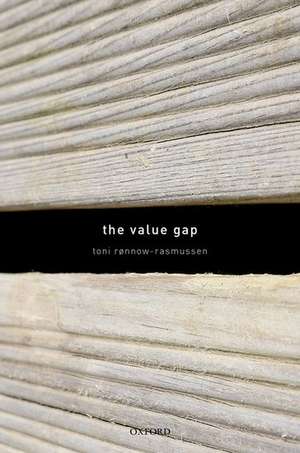The Value Gap
Autor Toni Rønnow-Rasmussenen Limba Engleză Hardback – 2 dec 2021
Preț: 474.06 lei
Preț vechi: 553.33 lei
-14% Nou
Puncte Express: 711
Preț estimativ în valută:
90.72€ • 98.51$ • 76.21£
90.72€ • 98.51$ • 76.21£
Carte disponibilă
Livrare economică 22-28 martie
Preluare comenzi: 021 569.72.76
Specificații
ISBN-13: 9780192848215
ISBN-10: 0192848216
Pagini: 238
Dimensiuni: 163 x 240 x 18 mm
Greutate: 0.52 kg
Editura: OUP OXFORD
Colecția OUP Oxford
Locul publicării:Oxford, United Kingdom
ISBN-10: 0192848216
Pagini: 238
Dimensiuni: 163 x 240 x 18 mm
Greutate: 0.52 kg
Editura: OUP OXFORD
Colecția OUP Oxford
Locul publicării:Oxford, United Kingdom
Recenzii
This volume provides an engaging discussion of the distinction between relational and nonrelational goods, that is, being good for a subject rather than being good simpliciter.
Notă biografică
Toni Rønnow-Rasmussen is a Professor and Acting Chair in Practical Philosophy at the Department of Philosophy, Lund University. In 2015, he was elected member of Academia Europea. He is the author of Personal Value (OUP, 2011), and has more recently published articles on moral progress, fitting-attitude analysis, intrinsic and extrinsic value, pro- and contra-attitudes, reasons, and on the metaethical view that he calls on-conditionalism.
